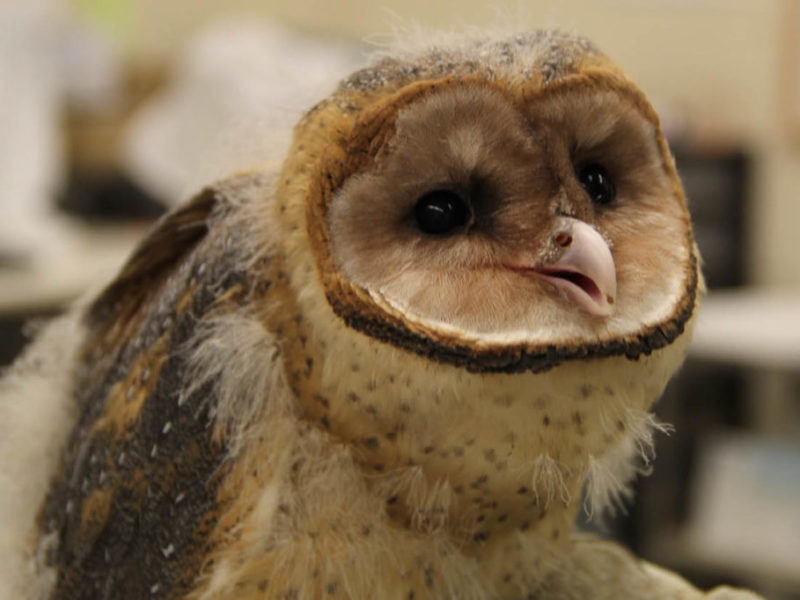You’re invited to a wildlife baby shower and fundraiser
Support the Wildlife Department through spring baby season
You’re invited to a wildlife baby shower happening Sunday, February 23, from 12-4PM. Don’t miss this opportunity to learn from CNC’s Wildlife Department what to do should you find baby birds or other baby animals. Tickets are available for purchase.
Did you know spring is the perfect time of year for baby animals? While they may be cute in their first weeks, a lot goes into caring for them, as CNC’s wildlife rehabilitators can tell you.
Come learn all about CNC’s efforts to help injured wildlife as we celebrate a wildlife baby shower. The wildlife team relies heavily on donations to do their work and provide care for the animals. Licensed Wildlife Rehabilitators cannot accept payment for their services; therefore, without the help of the community, CNC will not be able to support all the baby animals who come to us this year.
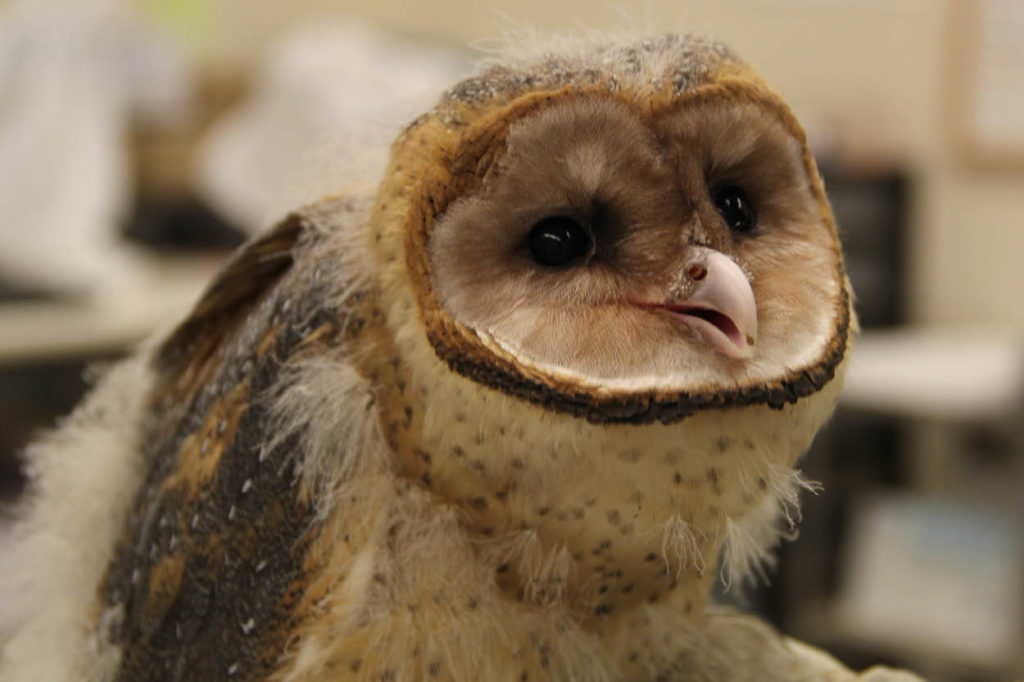 Spring brings buds, blooms, and rains, and lots of calls to the Wildlife Department at CNC about baby animals. While CNC is licensed and trained only for raptors, reptiles, and amphibians, the Wildlife Department responds to over 150 requests each month in spring regarding wildlife babies of all species. Almost 300 animals less than one year of age were accepted for care at CNC, while the others were referred to rehabbers of those species if necessary. Generally, it costs about 3 times as much to rehab a juvenile than an adult, mostly because they eat so much more food. Overall, CNC takes in nearly 800 injured, orphaned, and kidnapped animals each year.
Spring brings buds, blooms, and rains, and lots of calls to the Wildlife Department at CNC about baby animals. While CNC is licensed and trained only for raptors, reptiles, and amphibians, the Wildlife Department responds to over 150 requests each month in spring regarding wildlife babies of all species. Almost 300 animals less than one year of age were accepted for care at CNC, while the others were referred to rehabbers of those species if necessary. Generally, it costs about 3 times as much to rehab a juvenile than an adult, mostly because they eat so much more food. Overall, CNC takes in nearly 800 injured, orphaned, and kidnapped animals each year.
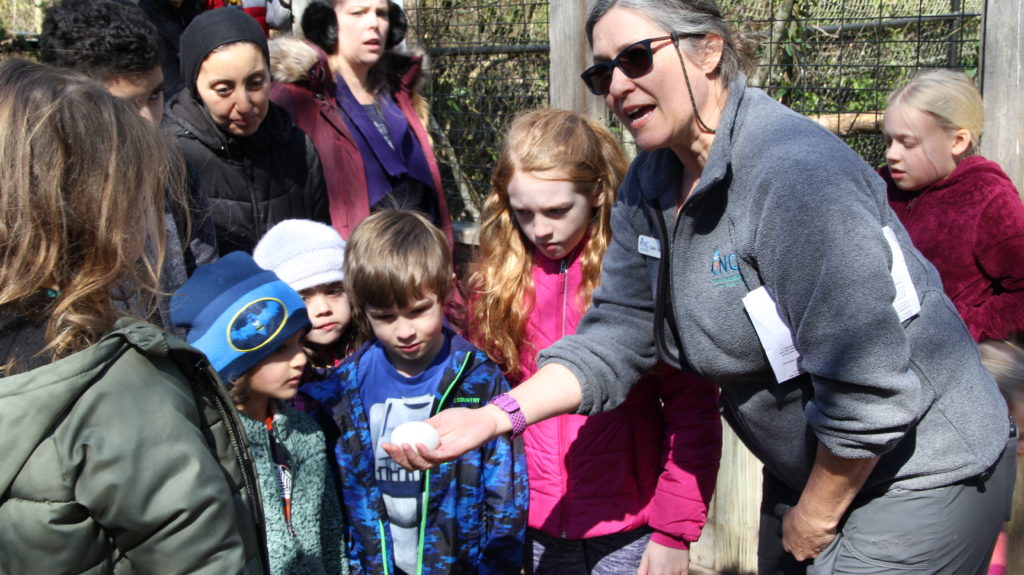 This day is a great opportunity to meet Wildlife Department staff and volunteers and learn about what they do as well as get up close to some amazing animals. Learn from professionals what to do when you find a baby animal. CNC will have unique wildlife walks with specialists dishing all the best stories about our rehabilitated animals, community partners, and fun games for the whole family to learn about their favorite baby animals.
This day is a great opportunity to meet Wildlife Department staff and volunteers and learn about what they do as well as get up close to some amazing animals. Learn from professionals what to do when you find a baby animal. CNC will have unique wildlife walks with specialists dishing all the best stories about our rehabilitated animals, community partners, and fun games for the whole family to learn about their favorite baby animals.
But what’s so special about spring for baby wild animals?
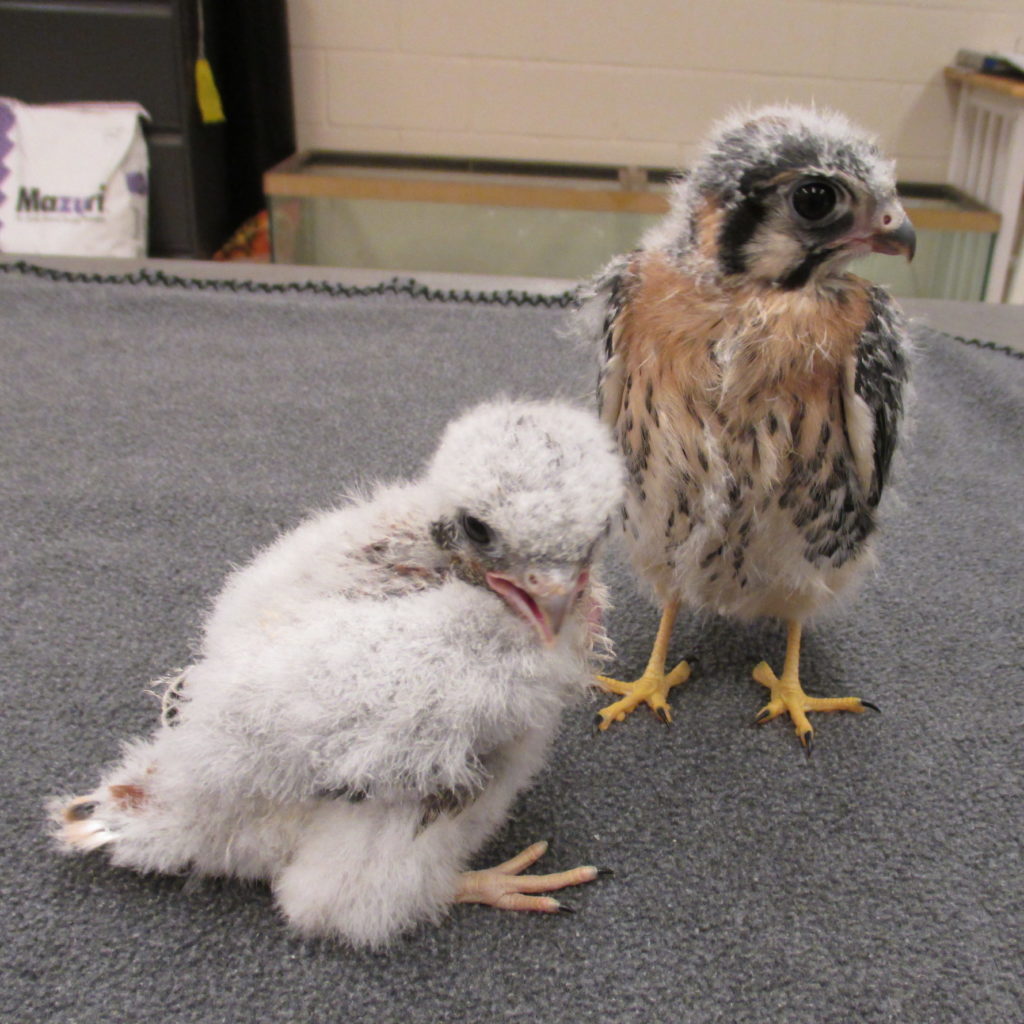 Wildlife Director Kathryn Dudeck lays it all out: “With warmer weather approaching, plants are beginning to sprout and bud, which is delicious food for several smaller animals, such as rabbits, chipmunks, and songbirds. An ample food supply signals that it is suitable conditions to have offspring. With smaller animals being born, predatory species such as raptors coincide their breeding seasons.”
Wildlife Director Kathryn Dudeck lays it all out: “With warmer weather approaching, plants are beginning to sprout and bud, which is delicious food for several smaller animals, such as rabbits, chipmunks, and songbirds. An ample food supply signals that it is suitable conditions to have offspring. With smaller animals being born, predatory species such as raptors coincide their breeding seasons.”
For instance, Eastern cottontail rabbits typically breed from February–September, and Great Horned Owls (a main predator of rabbits) often lay eggs in January so that there will be ample prey to feed their young.
Caring for young animals can be tricky as well, Dudeck said. Reptiles can be easy; from hatching, the species native to north Georgia are self-sufficient and don’t need a parent. This does not stop people from finding hatchling turtles and, thinking they have been orphaned, bringing them in for rehabilitation. They’re OK! Leave them be!
Raptors are a different story entirely. Two of the primary reasons CNC sees young birds of prey are because of nest loss, due to storms or human interaction, and being clumsy teenagers, Dudeck said.
Yes, even raptors go through an awkward phase.
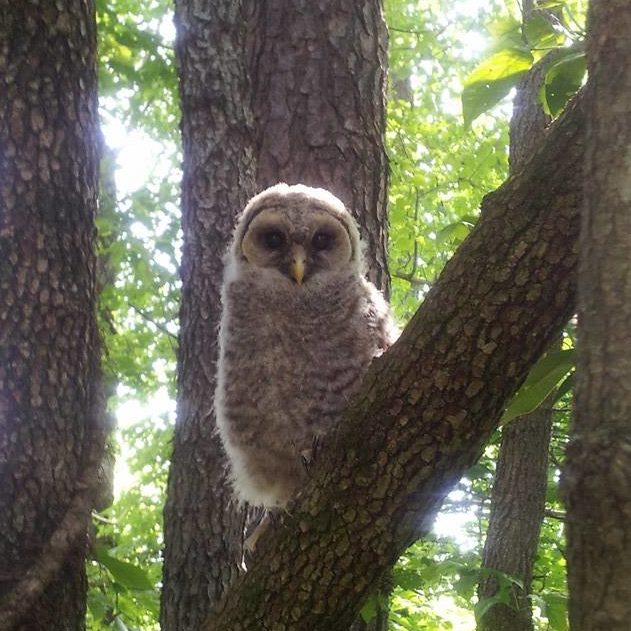 “Once raptors start to grow their adult feathers, they are too large for the nest,” Dudeck said. “At approximately 6-8 weeks old, they start perching on the branches around the nest and then start building up their flight muscles by jumping from branch to branch. Occasionally, they miss a landing and are found uninjured on the ground.”
“Once raptors start to grow their adult feathers, they are too large for the nest,” Dudeck said. “At approximately 6-8 weeks old, they start perching on the branches around the nest and then start building up their flight muscles by jumping from branch to branch. Occasionally, they miss a landing and are found uninjured on the ground.”
Unfortunately, raptors require more care than reptiles. For starters, depending on the age they may need feeding every couple of hours or their food must be specially prepared.
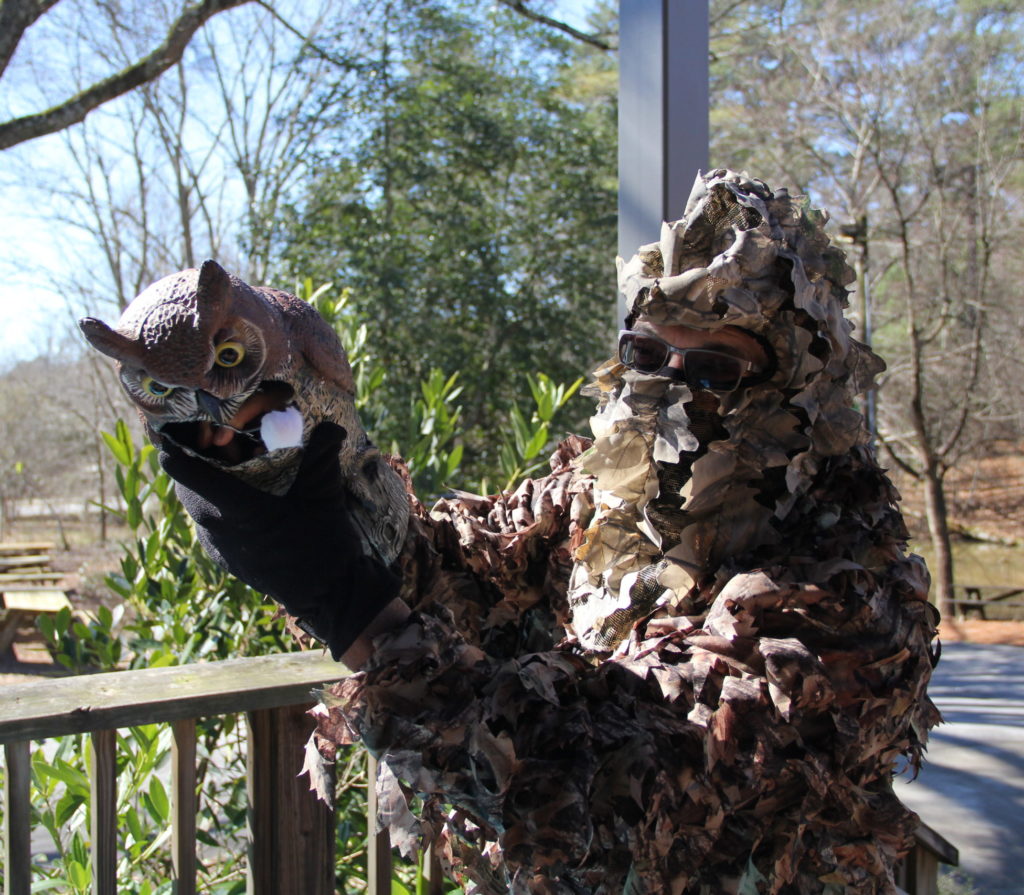
Because they can imprint on another creature (like humans), Wildlife staff at CNC wear a ghillie suit to disguise themselves and play recorded food-begging calls. Since vultures have an acute sense of smell, feathers from our resident vultures can be placed around the baby to give off the right smells.
Whenever possible, CNC will attempt to reunite the youngster with its parents if it is uninjured. If that is not possible, our non-releasable resident birds will sometimes become temporary foster parents.
If you come across a baby animal this spring, here are some tips to help:
1) Observe from a distance to look for the parents. They may be out hunting!
2) If no parents are seen, contact a licensed wildlife rehabilitator. Some species leave their young for hours at a time. Do not try to capture the animal or offer it food. Even babies can carry diseases, and the wrong food can kill them.
3) Contact Animal Help Now (ahnow.org) to find your local rehabilitator for instructions on how best to proceed.
How can you help?
Attend the wildlife baby shower on Sunday, February 23. Ticket and member reservations are now open!
Bring in an item from the wish list below! You can drop it off any time in the Discovery Center beginning February 1 or bring it with you to the baby shower.
Make a donation to the Wildlife Department.
Learn more about the CNC Wildlife Department and the rehabilitation support they provide to raptors, reptiles, and amphibians.
Thank you in advance for all of your support and we look forward to seeing you at the Wildlife Baby Shower!
Partners:
Gina Gallois (Moonflower Press) – Children’s books about the natural world in English, French, & Spanish
Primarily ‘Possums
Wild Nest Bird Rehab
Georgia Wildlife Network
Georgia Department of Natural Resources – Urban Wildlife
Other Wish List items:
Reptibark substrate
Pine/softwood shavings
24” and 36” cable/zip ties
Zep heavy-duty spray bottles
Amazon gift cards
PetSmart and Petco gift cards
Kroger and Publix gift cards
Home Depot gift cards
Gift certificates to our food vendors:
RodentPro: Frozen Feeder Rodents – Frozen Mice & Feeder Rats for Premium-Quality Reptile and Bird of Prey Food | RodentPro
Mazuri:  Mazuri® Exotic Animal Products – You Do ‘Zu
Mazuri® Exotic Animal Products – You Do ‘Zu
American Rodent Supply www.americanrodent.com
Armstrong’s Cricket Farm: Buy Live Crickets and Worms
Fluker Farms: Cricket Quencher Calcium Fortified and High Calcium Cricket Diet

